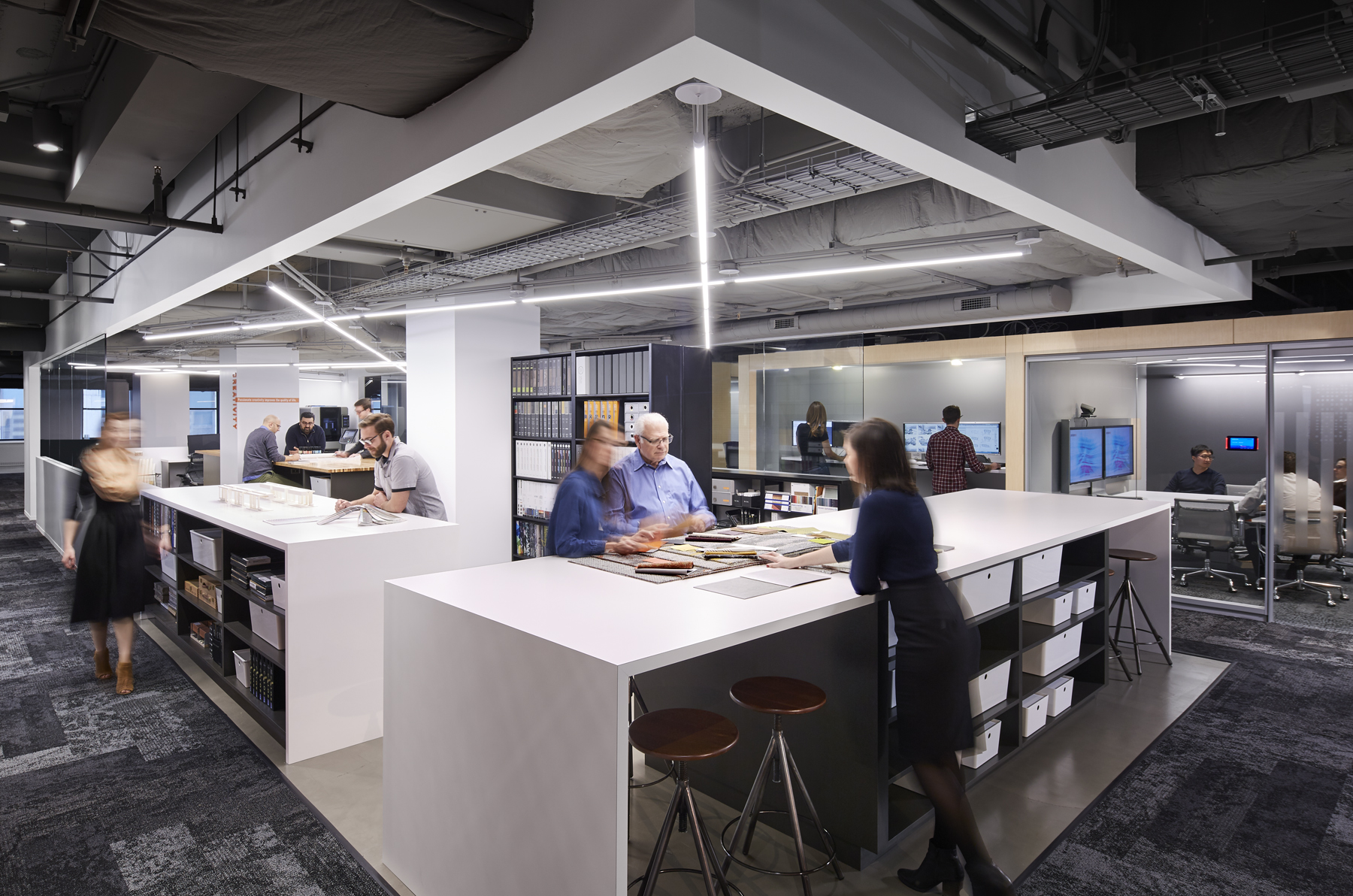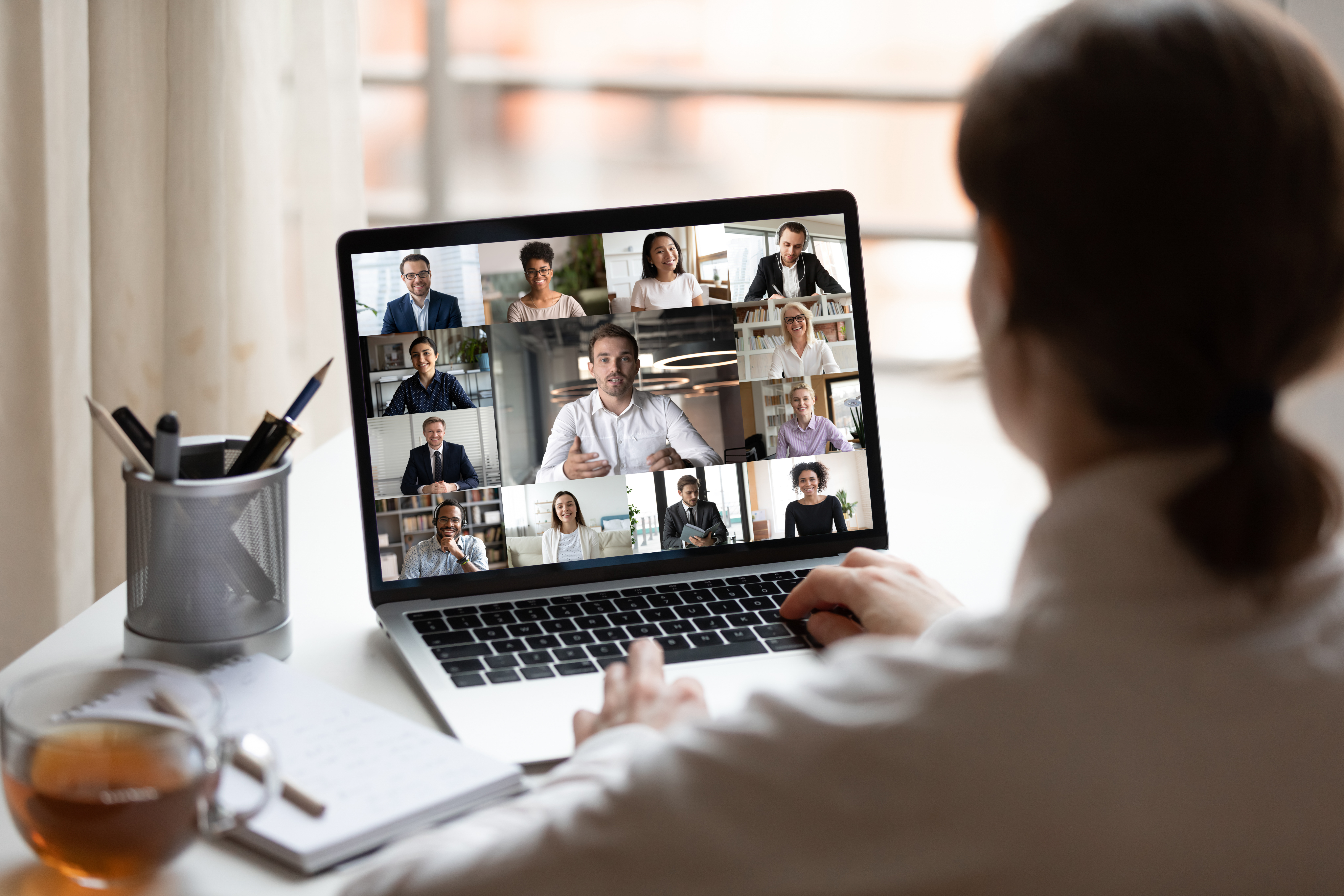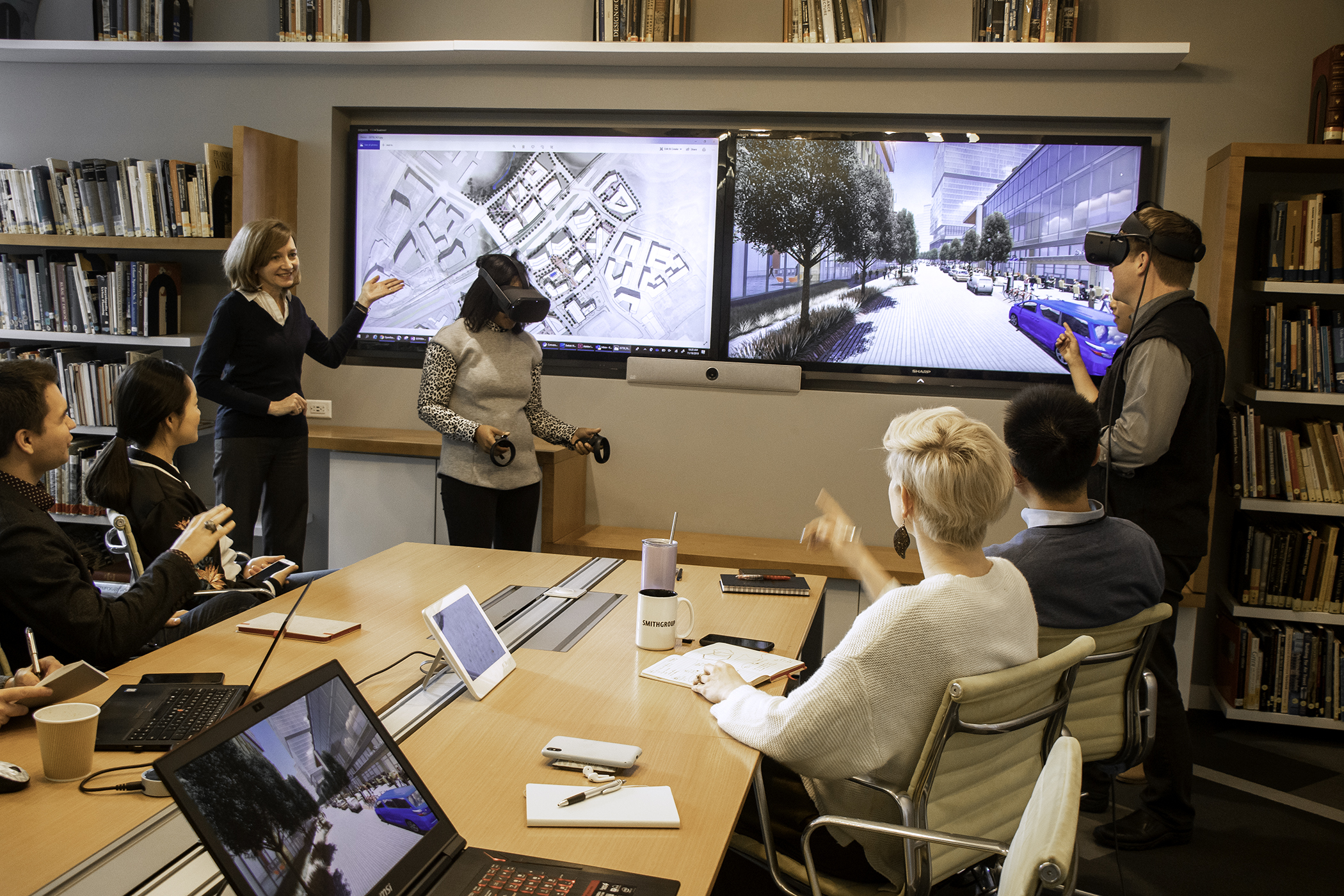如何在变动的环境里推动文化发展:反思从新冠疫情中学到的经验 - Metropolis智库研讨会
The COVID-19 pandemic resulted in the largest work-from-home experiment, forcing various industries to accept that the term “workplace” now includes any location where work can occur. This concept has changed habits, exposed weaknesses, and created opportunities for employees. Taking this one step further, how will these changes and post-pandemic workplaces ultimately impact an organization’s culture?
SmithGroup recently participated in a virtual think tank discussion, hosted by Metropolis, that explored such a topic. As an Architect and Workplace Designer at SmithGroup, I was joined on the panel by Jeffrey Moore, Director of the Beckman Institute for Advanced Science & Technology at the University of Illinois at Urbana-Champaign and Josh Peterson, Workplace Development Director for American Family Insurance. The event was hosted and moderated by Avi Rajagopal, Editor-in-Chief of Metropolis.
Our discussion revealed various ways to proactively impact an organization's culture during this pandemic-ridden time. Discussion topics encompassed the effects COVID-19 has on organizations (whether they be specific challenges or positive, unexpected outcomes), and how organizations can harness those changes to build a better workplace culture.
CHALLENGES
Once companies were able to move beyond the initial crisis mode of the pandemic and secure an operational virtual workplace for their employees, it was only natural that additional challenges would rise out of this massive structural change. Below are some challenges we identified, as well as some proposed solutions to mitigate these challenges:
- Generating Spontaneous Conversations: These chance run-ins are much more difficult when staff are siloed at home. Employees are scheduling informal check-ins with no set agenda to have open-ended, quick conversations throughout the day and stay connected to colleagues.
- Maintaining Mentorship Programs: At SmithGroup, we believe that one of the most effective ways to learn is through one-on-one mentorship, whether this be in-person or virtually. If you are working with your mentor/mentee virtually, consider an open-ended video session in which you work on your own tasks, but are also able to bounce ideas off each other when needed.
- Face-to-Face Tasks: By evaluating which tasks can be done remotely and which tasks require in-person activity, we can begin to formulate the new future of work, one where the office is a resource used when it benefits the work.
We needed to reimagine our normal initiative. Our employees indicated that they would like more flexibility and be empowered to make decisions around where they work most effectively based on their daily needs.
Josh Peterson
American Family Insurance
These and any other challenges can be addressed by assessing what was working pre-pandemic – and more importantly why was it working pre-pandemic – and then examine these positive attributes and uncover new technology-driven ways to achieve them.
BENEFICIAL OUTCOMES
While working remotely has brought on many challenges, it also created some benefits that we may have never discovered otherwise. Such benefits revealed in our panel discussion include:
- Humanistic View of Colleagues: The workplace now has an inherent casualness to it. In our new virtual world, we have a window into our colleague’s personal lives. From this comes more empathy, a deeper understanding, and greater appreciation for our co-workers. This casualness can also impact meeting engagement in instances where videoconferences replaces formal meetings:
We've done a remarkable job in Zoom sessions of capturing the chat function. When our research group previously met face-to-face, everyone would hold their questions to the end. With the Zoom chat function, a lot of questions and answers are occurring during the meeting. Now that culture is set in place, and everyone shows up to the Zoom meeting fired up and ready to chat.
Jeffrey Moore
University of Illinois Urbana-Champaign
- Acceptance of Non-Traditional Work Hours: This flexibility allows employees to be more productive in our work life and home life. If you weren't in the office from 9am and 5pm, it was previously looked down upon. In some cases, it doesn’t necessarily matter what time a task was completed, as long as it was done on time and done well.
- Broadening Our Approach to Wellness: As we are continually reminded that personal health should be a top priority, many companies are re-evaluating their benefits program to ensure they are providing their employees with the best options to secure optimal wellness. Some wellness benefits that remote work has enlightened includes:
- Having direct access to natural light and taking short breaks to get outside allows for an increase in productivity and mood.
- Creating a proper, ergonomic set up at home is important. Companies need to consider how to mirror an ideal office-set-up at home.
- Having easier access to healthy, homemade food options.
HOW TO MOVE FORWARD
As Josh mentioned in our panel discussion, the words of Winston Churchill ring true: “never let a good crisis go to waste.” His sage advice can be applied to the next steps of developing this new workplace. While the pandemic has challenged us in so many ways, we have learned we are resilient. It has given us opportunities to find new, better ways to conduct our work while also continually improving our company culture. We can accomplish this through:
- Building a Culture Around Trust: We want to make sure that people only come into the office if they are comfortable doing so. When employees are uncomfortable, they will not perform as well. A great workplace culture is based on trust, empathy, and equity among all employees.
- Leveraging Technology: This is our lifeline to the outside world, and having the proper technology is vital to getting our work done as efficiently as possible, whether you are working remotely or in the office. As more people return to work, it is important to establish a hybrid between the two to remain inclusive for all workspaces.
We have learned more in the last six months about virtual collaboration and leading remote teams than we learned in the last six years.
Josh Peterson
American Family Insurance
- Establishing a Better Work/Life Balance: For some of us, we are now sleeping, eating, working, and living in the same space. Appropriately separating work life and home life is essential. Companies that establish ground rules, realistic expectations, and acknowledge the whole employee will come out ahead.
- Optimizing Travel: Prior to the pandemic, there was an abundance of work travel in some cases. This can cause unnecessary stress and inefficiency. We are learning that some meetings and conversations can be done virtually just as well as in-person.
- Assessing Real Estate: Think of the office as a tool to accomplish our business needs. Even before the pandemic, SmithGroup viewed our office as a resource for staff, and every space we built is a means to help complete work.
We are moving away from the assumption that the office is for all daily work activities to thinking of the office as a destination for collaboration, innovation, and cross-functional project work.
Josh Peterson
American Family Insurance
Ultimately, blending the benefits we learned over the last six months with the understanding that work will never be the same, we can Design a Better Future of work, one that is more empathetic, equitable, and flexible. For additional information on how to use the workplace to impact culture or for insights on office design after COVID-19, visit our collection of resources.


